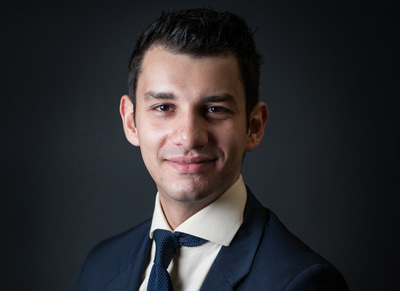- OT
- Life in practice
- Practitioner stories
- “I am always looking for ways to simplify equivocal clinical diagnoses”
CET author Q+A
“I am always looking for ways to simplify equivocal clinical diagnoses”
Dr Daniel Epshtein on cringe-worthy career moments, the importance of his OCT, and NYC dining

18 September 2020
What is your professional passion?
My professional passion is ocular disease in all its forms: posterior segment, anterior segment, glaucoma, and neuro-ophthalmic. I am always looking for ways to simplify equivocal clinical diagnoses, usually with the use of multimodal imaging.What do you like least about your working day?
I wish my workday would start a bit later. I am definitely not a morning person.What is your most cringe-worthy career moment?
I once sent a patient for a laser peripheral iridotomy (LPI) evaluation but she already had LPIs. She had very dense arcus and the LPIs were minimally patent and I somehow missed them during my examination.

What is the one thing you couldn’t live without?
My OCT. I manage so many more conditions confidently because I am able to diagnose and then follow these patients with OCT.I wish my workday would start a bit later. I am definitely not a morning person
How do you manage a work/life balance?
I split the year into seasons and try to make sure that I enjoy each one to its fullest. That means skiing in the winter, beach in the summer, and so on.
What do you do to unwind?
In non-COVID times, exploring and eating/drinking my way through NYC.
You have won the OT lottery. What are the first three things you would do with the £1m jackpot?
I would pay off my student loans, buy an apartment, and get an amazing dinner.
Did you have your next holiday booked? Where were you going?
I had nothing booked for this year but, hopefully, in 2021 I’ll be spending a week each in Los Angeles and Nova Scotia.
About the author
Dr Daniel Epshtein currently practices in a hospital-based ophthalmology practice at Mount Sinai St Luke’s in New York City. Previously, he held a position in a high-volume multispecialty practice where he supervised optometry students as an adjunct assistant clinical professor of the SUNY College of Optometry. Daniel’s research focuses on using the latest ophthalmic imaging technologies to elucidate ocular disease processes and to help simplify equivocal clinical diagnoses.


Comments (0)
You must be logged in to join the discussion. Log in